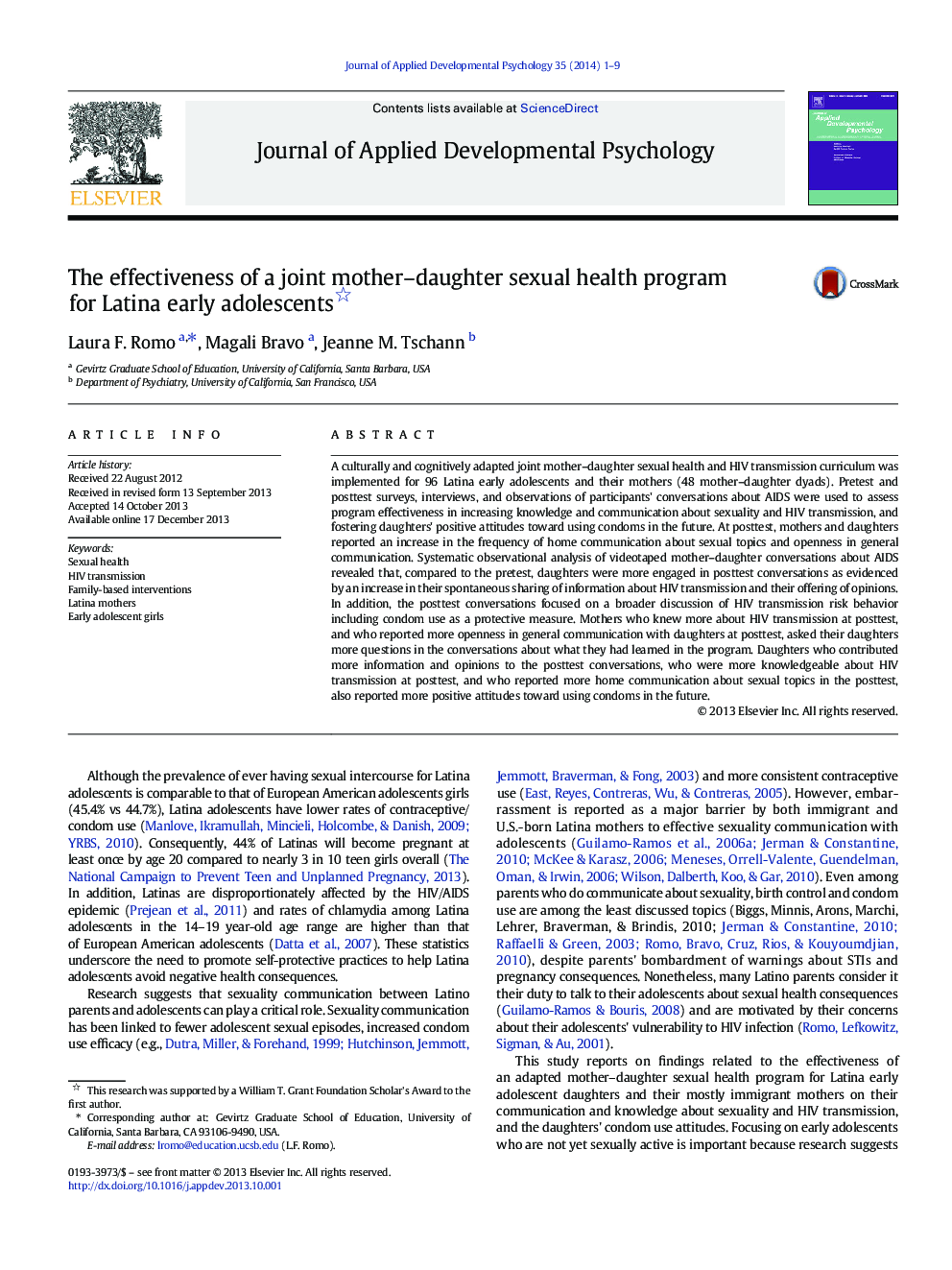| Article ID | Journal | Published Year | Pages | File Type |
|---|---|---|---|---|
| 10314314 | Journal of Applied Developmental Psychology | 2014 | 9 Pages |
Abstract
A culturally and cognitively adapted joint mother-daughter sexual health and HIV transmission curriculum was implemented for 96 Latina early adolescents and their mothers (48 mother-daughter dyads). Pretest and posttest surveys, interviews, and observations of participants' conversations about AIDS were used to assess program effectiveness in increasing knowledge and communication about sexuality and HIV transmission, and fostering daughters' positive attitudes toward using condoms in the future. At posttest, mothers and daughters reported an increase in the frequency of home communication about sexual topics and openness in general communication. Systematic observational analysis of videotaped mother-daughter conversations about AIDS revealed that, compared to the pretest, daughters were more engaged in posttest conversations as evidenced by an increase in their spontaneous sharing of information about HIV transmission and their offering of opinions. In addition, the posttest conversations focused on a broader discussion of HIV transmission risk behavior including condom use as a protective measure. Mothers who knew more about HIV transmission at posttest, and who reported more openness in general communication with daughters at posttest, asked their daughters more questions in the conversations about what they had learned in the program. Daughters who contributed more information and opinions to the posttest conversations, who were more knowledgeable about HIV transmission at posttest, and who reported more home communication about sexual topics in the posttest, also reported more positive attitudes toward using condoms in the future.
Keywords
Related Topics
Social Sciences and Humanities
Psychology
Applied Psychology
Authors
Laura F. Romo, Magali Bravo, Jeanne M. Tschann,
